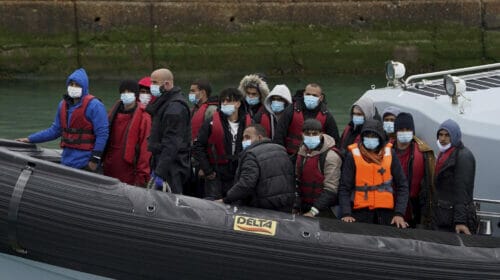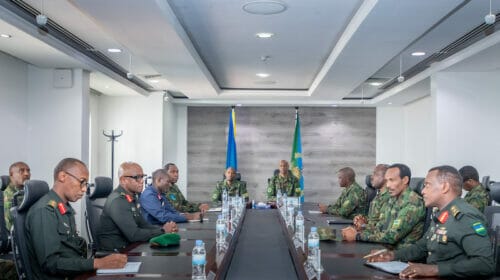WHAT WILL LIKELY BECOME THE UGLIEST ‘NON-POLITICAL’ FIGHT IN POST-KAGAME RWANDA?
 By: Dr. David Himbara
By: Dr. David Himbara
My readers often ask me all sorts of questions including strange ones that take me to task. I try to answer them the best way I can. One of such questions posed to me earlier today is: “what will likely become the ugliest non-political fight in post-Kagame Rwanda.”
This question is NOT about the near-term political outcomes and consequences regarding what might happen in and beyond 2017. Nobody knows what will happen in the realm of politics – whether for example:
(1) A constitutional change will remove presidential term limits to allow President Kagame to become a-ruler-for-life; or
(2) A figurehead ruler will be sponsored while Kagame rules from behind the scenes; or
(3) The figurehead will subsequently hand back power to Kagame after one term as in Medvedev-Putin’s ‘political dance’ in Russia; or whether
(4) Kagame will after miraculously experiencing his own “Damascus moment” hand over power to an electoral winner of genuine elections.
Rather, the question I am addressing is what will constitute “the ugliest non-political fight” after Kagame has COMPLETELY relinquished power. I am fully aware, of course, that the idea of Rwanda without Kagame at the helm is unimaginable to some people but this will happen sooner or later. From Sir Isaac Newton’s “Universal Law of Gravitation” we know that whatever goes up eventually falls to earth. The Rwandan president will, too, encounter his own gravitational drop, not least via the biological clock, if not by loss of political power.
THE UGLIEST FIGHT AFTER KAGAME WILL BE ABOUT RPF MONEY & ASSETS
My crystal ball tells me that the ugliest fight in post-Kagame era will be about the Rwandan Patriotic Front’s (RPF) money and assets. I base my arguments on four questions – “how much,” “where is the money,” “who owns the assets,” and “how will Crystal Ventures Ltd become sustained” beyond Kagame.
Before looking at these four questions, a background note is in order. Ordinarily sudden power and “new” money feel fabulous, taste great, has style, and are just plain cool. But for all sudden power and new money have going for them, they can often become a kiss of death especially when being exercised by people who in a short period of time have “fallen into things.”
In such circumstances the level of mutual trust ranges from low to non-existent. There are hardly any individuals “on the same side.” What you see instead is perpetual and ruthless back-stabbing accompanied by chronic lack of trust. Secrecy and a culture of hoarding and hiding information from colleagues that need to work together take root: priority becomes instead sharing lowly and routine information with the top leader to impress him and to win favours from him.
In a nutshell, this is the toxic environment in which power and money have been accumulated and used in RPF, the ruling party headed by President Paul Kagame directly or indirectly since 1990. Once in governmental power from 1994 onwards, people who had nothing suddenly acquired access to power, influence and money. And they answer to one man – the president, who also single-handedly determines their fate. Without presidential blessing, his subordinates become non-entities. The system is dependent on and primarily thrives on the goodwill of a single kingpin whose presence and roles over-shadow everything else.
HOW MUCH MONEY & ASSETS?
Besides being President of Rwanda, Paul Kagame is RPF’s Chairman, and in practice the real “CEO” of Crystal Ventures, the ruling party’s conglomerate. The wealth of Crystal Ventures is acquired mostly via its dominant position in telecommunications, construction, real estate, and food processing. Various guess-estimates maintain that Crystal Ventures is bigger than Rwanda’s private sector. The RPF conglomerate is said to be the second largest employer after government.
The main question here however is knowing how much wealth is earned and invested by the group. How much are the dividends or profits earned by the group’s firms? How much money was made from the sale of RPF’s shares in MTN Rwanda and MTN Uganda? Does the membership of RPF, or even the RPF Secretariat know any of this? The answer is NO. There is no definite answer to the question “how much money does RPF have.” Only the President of Rwanda and a few individuals know these “secrets.”
WHERE IS THE MONEY?
Where is the RPF monies invested domestically or internationally? Do members have any idea? NO.
WHO OWNS THE ASSETS?
Here is how Crystal Ventures Ltd describes who their owners are: “The founders were among the pioneers of Rwanda’s private sector and took on the task of jump-starting the heavily dilapidated private enterprise. Having made a few good investments especially in telecoms, the company earned decent returns that were reinvested to create what is now the biggest investment company in the country….In the beginning the company enjoyed monopoly power in some of its businesses but over time this has diminished.” http://www.crystalventuresltd.com/
Beyond such vague rhetoric and generality, you do not find on Crystal Ventures’ website any names – certainly no Board of Directors, or rules of how the holding company works. Even if the names were published, such individuals are answerable to the real CEO of the Group who is President Kagame; and James Musoni in his capacity as special assistant to Kagame in RPF affairs.
HOW WILL THE EMPIRE BE SUSTAINED AFTER KAGAME?
In a uniquely Rwandan crony capitalism, Crystal Ventures feeds off the public sector leading to conflicts of interest that have however become accepted and institutionalised. ‘Crony Capitalism’ is defined as a capitalist system “based on the close relationships between businessmen and the state” whereby “the success of a business is dependent on the favoritism that is shown to it by the ruling government…”
http://www.investopedia.com/terms/c/cronycapitalism.asp
A quick glance at Crystal Ventures’ website provides a glimpse of crony capitalism in Rwanda; for example RPF’s Crystal Venture conglomerate is currently renovating the Central Bank of Rwanda; is building a stadium in the Southern Province; and has completed building the Gitarama branch of the Bank of Kigali, which is wholly-owned by the Kagame government. There are other known cases of institutionalised conflicts of interest – such as in the aviation sector where government rents RPF’s executive jets for transporting Kagame in his capacity as president; and use of Rwanda social security funds to build RPF’s companies such as the East African Granite Industries. Privatization of Kagame government entities to Kagame the businessman is illustrated by the case of Savannah Dairy processing plant sold to Inyange Industries in 2012 which allowed Crystal Ventures to control the milk market in Rwanda.
Additional means of reinforcing crony capitalism is President Kagame’s deployment of the so-called ‘chairmen’ of Crystal Ventures whom he routinely transfers from his government and returns to the public sector where removed. Professor Manasseh Nshuti was at one time finance minister and advisor to President Kagame. Nshuti who was removed from Crystal Ventures in May 2013 is now the chief campaigner for constitutional amendment to remove term limits to permit Kagame to remain president beyond 2017. Prior to Nshuti’s tenure at Crystal was John Mirenge who is now CEO of Rwanda Air. Jack Kayonga is the latest Kagame appointee as ‘chairman’ after his tenure of CEO of the Rwanda Development Bank, a governmental lender that is widely known for financing Crystal Ventures’ projects.
From the above the five main channels of Rwandan crony capitalism become evident: 1) renting; 2) financing by government entities; 3) privatisation of public entities; 4) contracts: and 5) transfer of strategic personnel with insider information.
There can be no question that the primary source of wealth for Kagame the CEO of RPF/Crystal Ventures is from Kagame the president of Rwanda. This is the ultimate perfection of crony capitalism. But how will this unique brand of institutionalised corruption become sustained in post-Kagame phase? This is the million dollar question.
UGLIEST FIGHT IN POST-KAGAME PHASE
Summing up, RPF assets will be subjected to the ugliest fight in post-Kagame for rather obvious reasons. The primary vehicle of these assts, Crystal Ventures, is NOT a “normal” corporate entity with known and transparent governance system:
* Today few know Crystal Ventures’ performance – whether strong or weak and in what year;
* Today few know for sure of its earnings – whether individual company’s earnings grew or declined and by how much;
* Annual meeting of Crystal Ventures Ltd’s shareholders are not known – if ever held!
* An Annual Repot with certified internal and external auditors’ validation is unheard in RPF business dealings. I dare any doubting Thomas to show us even a single Tristar/Crystal Ventures anual report published in the past 18 years. Zero – nothing!
Things appear to work under the autocratic management. In this dictatorial set-up where the President of Rwanda has total authority and control over decision-making, normality on surface prevails. But what happens when the President is out of this picture – who determines what, when, and how? Who will be the referee with no written rules? My crystal balls shows an ugly fight ahead.
About the Author: Dr. David Himbara has a long history with Rwanda and President Paul Kagame. His political positions include, Principal Private Secretary (PPS) to Rwandan Dictator Paul Kagame, Chairman of the Human Resource and Institutional Capacity Development Agency (HIDA) of the Rwandan Government and the Head of Strategy and Policy in the President’s Office. Then, in January 2010, David Himbara left Rwanda and exiled himself to South Africa.



